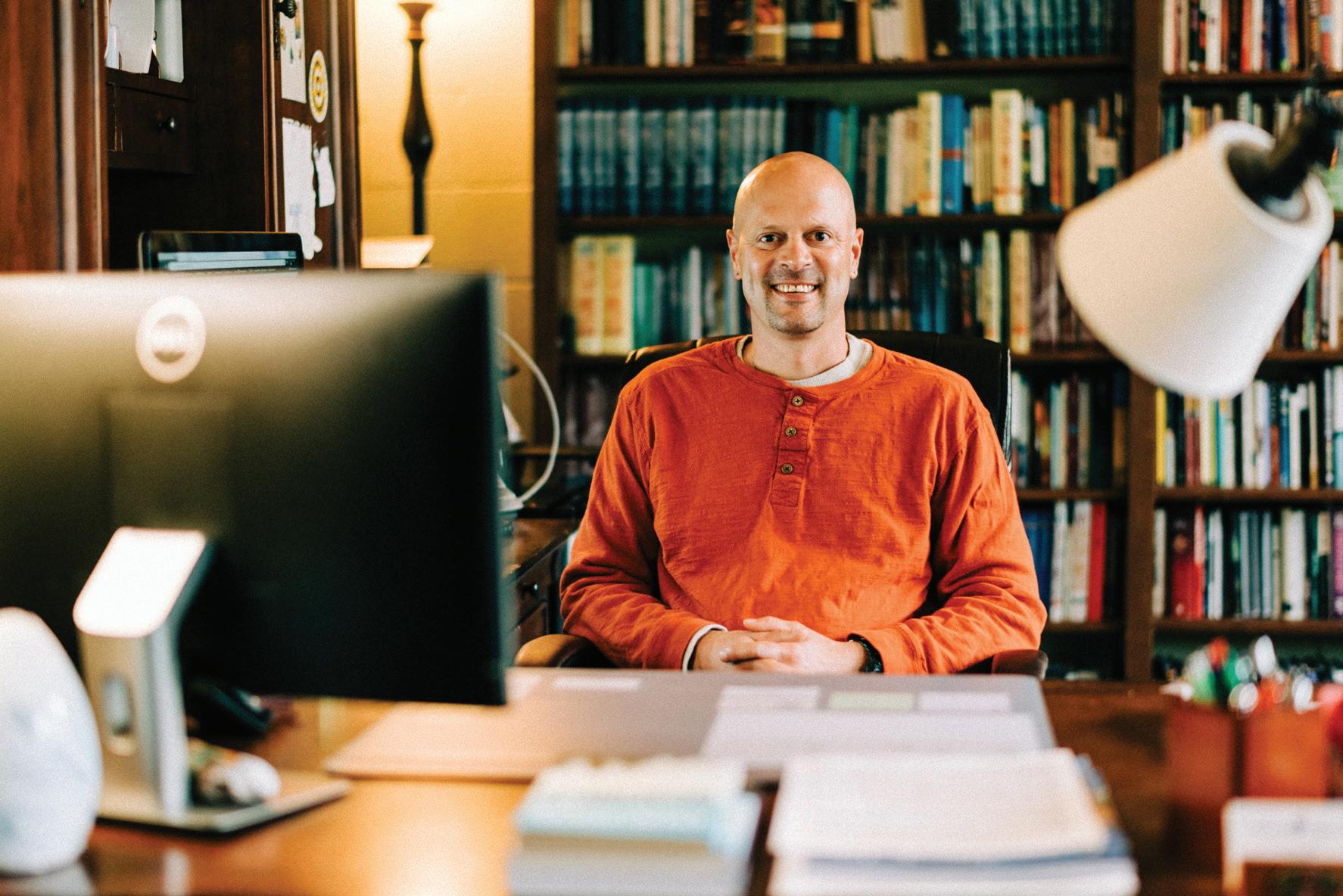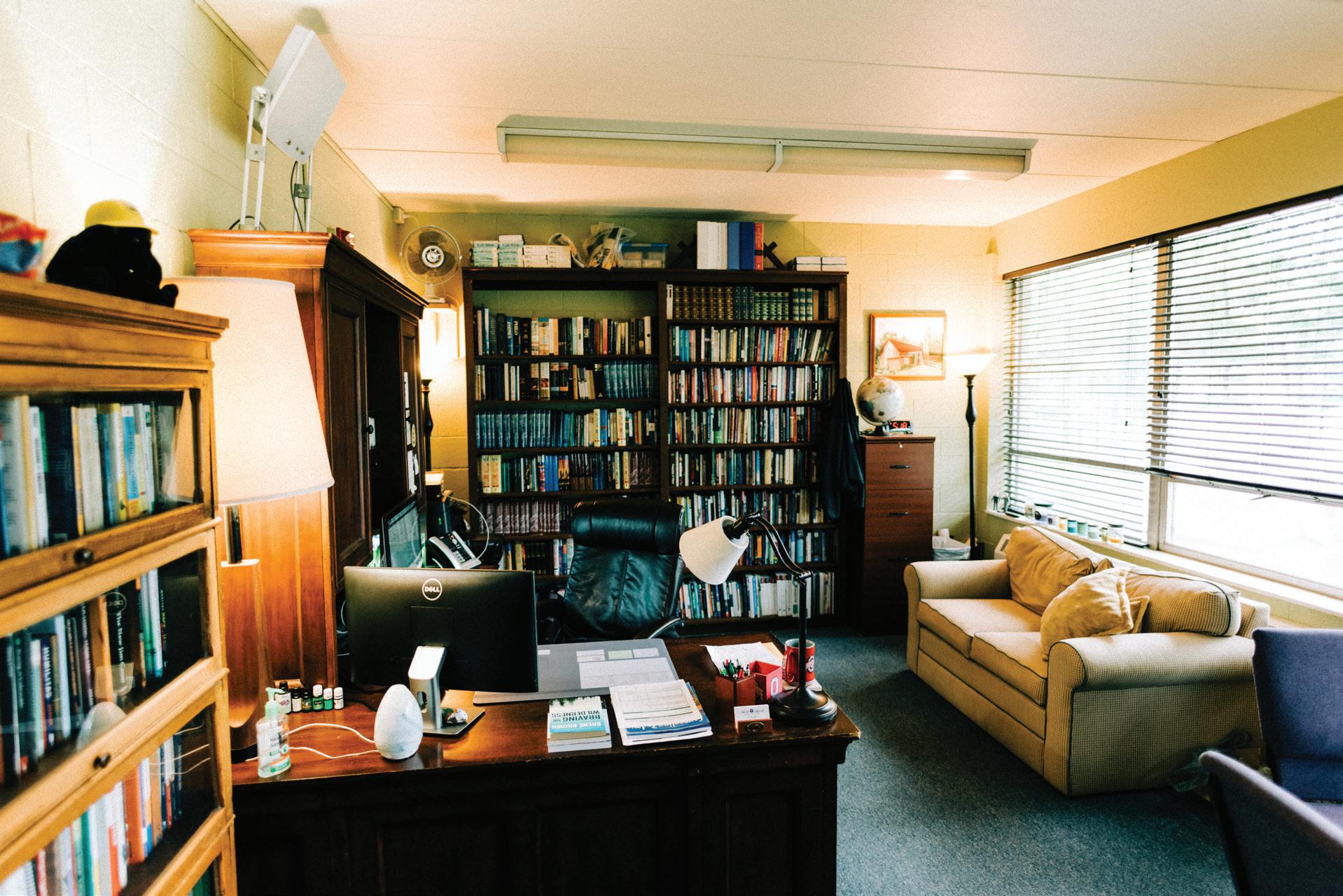
3 minute read
How Therapy Impacts Teens
How Therapy Impacts
Teens by Sam Elkins staff writer
Advertisement
Destigmatizing therapy and what it means for today’s teenagers
eople go through different kinds of trauma everyday. Whether it’s losing a loved one, getting through difficult experiences, or just bad things happening in life, there are some life events that are challenging to tackle alone. Children suffering the effects of parents divorcing, depression, and anxiety are only a few of the many things that might require a little bit of extra guidance. Like anything else in life, the idea of opening up to someone—let alone a complete stranger—can be stressful, but it can also be an incredibly useful resource to guide the mind and body through trauma. We face trauma all of the time in our everyday lives. For some of us, moving past trauma might come more naturally or can be moved through with more ease
Pthan others, but for some this just simply isn’t possible. For these people, having someone like a counselor or therapist can be extremely beneficial. E Randolph ‘24 attends therapy around every week at Kids Creek Clinic. “I “I’ve gotten to the point like going to therapy because where I assume someone’s it helps a lot with a bunch gone through something of different stuff I’ve been traumatic whether it’s a big or several little things.” through,” Randolph notes. For Randolph, a normal visit includes his therapist “asking about my day and talking about some of the things I’ve been through, and sometimes we go on walks and things like that.” Some people attend therapy to just have someone to talk to, someone to vent to, or just someone to get the emotions out with. As high schoolers, we need all of those things. Therapy is a
process of going in and being open and emotionally honest. It’s hard for many people to do that, but it helps them in time to talk to someone and gives them social skills. Reverend Jeff Goodwin is a local therapist at Grand Traverse Counseling and Wellness Center who often treats teens. “I’ve always been fascinated by psychology,” Goodwin explains. “I got hooked in a psychology class in high school, and I had a different major my first semester in college and changed my major to psychology.” Goodwin notes that, particularly with teens, “there’s a lot of significant trauma out there. I’ve gotten to the point where I assume someone’s gone through something traumatic until I found they haven’t just because this world is a really difficult place to live in.” Goodwin and many other counselors have a process they call “Big T, Little T,” that they use to evaluate trauma. “The capital T traumas [or] Big T traumas [is] seeing something horrific in combat. These guys that have seen the person next to them die, who’ve been in horrific fire fights. And then the Little T trauma is having everyone laugh at you in a public way, maybe in front of their friends. That’s what we call the Small T traumas.” Having different trauma types can affect many aspects of people’s lives, whether it’s big or small things. “And by using the Little T, we aren’t saying it’s insignificant; it’s just a lot of little things that add up,” Goodwin explains. Addy Cook ‘24 used to attend therapy and is planning on going back soon. “I think it was nice to have someone to talk to about how I was feeling,” Cook states. She finds that therapy is good “especially [for] younger people, [as they] usually have harder times coping with things and [they] are at an age that so much is going on. It can be helpful to learn good coping mechanisms instead of starting bad ones.” When life happens, we all need someone to talk to. And no matter what you call it—therapy, counseling, or just basic support—at our age, it’s not only helpful, it’s a basic necessity. //

Photos Courtesy of J. Goodwin










